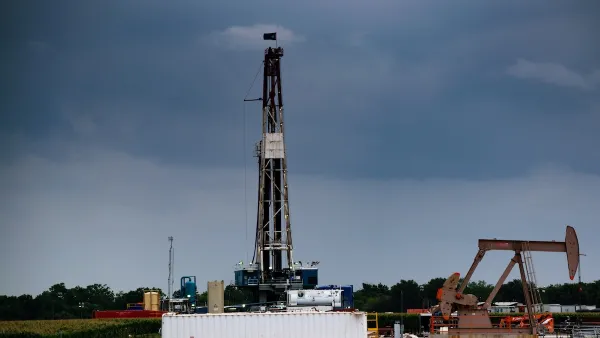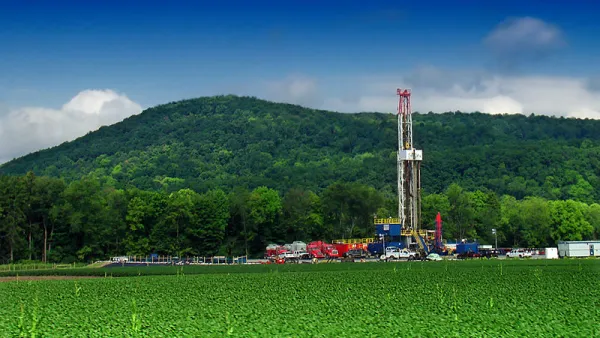New York Times economics writer and Nobel laureate Paul Krugman analyzes two major reasons for increasing oil drilling - reducing unemployment and lowering gas prices, and describes why it does neither.
Paul Krugman asserts, "The irony here is that these claims (of reducing oil prices and unemployment) come just as events are confirming what everyone who did the math already knew, namely, that U.S. energy policy has very little effect either on oil prices or on overall U.S. employment".
Acknowledging how fracking has increased both oil and natural gas production, he also notes that the increased natural gas supply has caused those prices to plummet, yet oil prices continue to rise.
Krugman repeats what others have stated - oil is priced on international markets, while natural gas prices are set domestically. Factors outside of supply and demand are at work, including rising demand from China and Mideast tensions that raise the price due to speculation. However, Krugman himself argued against blaming speculators for the rapid increase in oil prices in June, 2008.
Next, Krugman turns to what is now the third largest oil producing state, North Dakota, having just replaced California where oil production is on the wane. North Dakota enjoys the nation's lowest unemployment rate, largely attributed to the booming oil drilling in the Bakken shale rock formation.
"I have to admit that I started laughing when I saw the Wall Street Journal offering North Dakota as a role model. Yes, the oil boom there has pushed unemployment down to 3.2 percent, but that's only possible because the whole state has fewer residents than metropolitan Albany.
The comparable-sized fracking boom in Pennsylvania has had hardly any effect on the state's overall employment picture, because, in the end, not that many jobs are involved."
Thanks to Kenyon Karl
FULL STORY: Natural Born Drillers

Analysis: Cybertruck Fatality Rate Far Exceeds That of Ford Pinto
The Tesla Cybertruck was recalled seven times last year.

National Parks Layoffs Will Cause Communities to Lose Billions
Thousands of essential park workers were laid off this week, just before the busy spring break season.

Retro-silient?: America’s First “Eco-burb,” The Woodlands Turns 50
A master-planned community north of Houston offers lessons on green infrastructure and resilient design, but falls short of its founder’s lofty affordability and walkability goals.

Test News Post 1
This is a summary

Analysis: Cybertruck Fatality Rate Far Exceeds That of Ford Pinto
The Tesla Cybertruck was recalled seven times last year.

Test News Headline 46
Test for the image on the front page.
Urban Design for Planners 1: Software Tools
This six-course series explores essential urban design concepts using open source software and equips planners with the tools they need to participate fully in the urban design process.
Planning for Universal Design
Learn the tools for implementing Universal Design in planning regulations.
EMC Planning Group, Inc.
Planetizen
Planetizen
Mpact (formerly Rail~Volution)
Great Falls Development Authority, Inc.
HUDs Office of Policy Development and Research
NYU Wagner Graduate School of Public Service




























